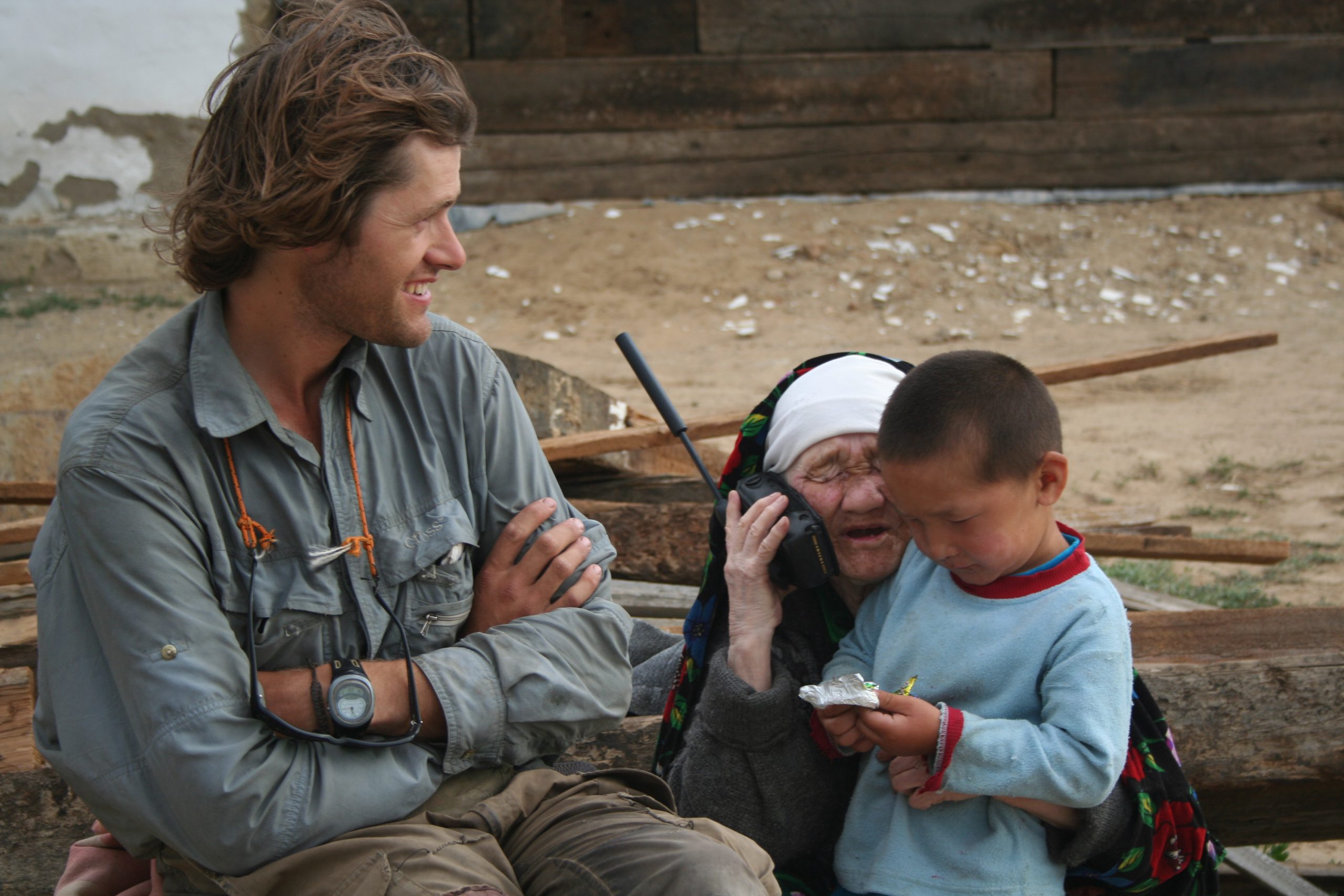Feature
IT says something about the spirit of Gippsland adventurer Tim Cope that his epic three-year journey, largely solo, across the entire Eurasian steppe on horseback was not what he considered an unconventional pursuit.
The 6000 mile trip following in the footsteps of Genghis Khan’s conquering armies took Tim, and his trusted dog Tigon, from the ancient capital of Mongolia to the Danube River in Hungary, trekking through wolf-infested plateaus, into deep forests, over glaciers, through deserts and treacherous mountain passes.
It’s hardly surprising the effort has seen the local author and film-maker attract widespread attention since he returned five years ago.
When The Express spoke with Tim on Friday he was still digesting the success of his current speaking tour, which had seen him sell-out a 350-seat Melbourne venue the night prior.
He said the public response to his recently released book, On The Trail of Genghis Khan, which was four years in the making, had been “really emotional and really exciting”.
Driven by a need to understand the horseback nomads from some of earth’s most remote locations, Tim managed to complete the only journey of its kind and later document the “first contemporary account of the Eurasian steppe and the different nomadic cultures from Mongolia and Hungary”.
He concedes he may be the only adventurer “stubborn enough” to have planned and executed such an ambitious undertaking, but said a life spent physically engaging with the world around him was not unconventional to him, “it was just something I had to do”.
Growing up near Warragul, Tim spent his early years cross country skiing at Mount Baw Baw and bushwalking at the ‘Prom’, guided by his father Andrew, who established the Bachelor of Sport and Outdoor Recreation at Monash’s Gippsland campus.
Tragically, Andrew was killed in a 2006 car accident, in the midst of Tim’s trip – an event he said significantly impacted on both his journey and the subsequent book.
Interest in the book, which secured an American publisher, has been significant.
“It’s traditionally very difficult to get an American publisher, but I went to New York in 2008 to pitch it to five or six publishers and I was amazed to get three or four offers,” Tim said.
Asked why he thought his trip had captured such intense public interest – Tim’s speaking tour will take him from the United States, United Kingdom and New Zealand to Germany – he said “I think maybe its the epic nature of it, the emotional extremes and cultural insights, the history and the relationship with animals, it just brings all the elements together”.
While Tim said he celebrated the book’s success, the intent of his journey was deeply personal.
“I have a broader curiosity about really wanting to know the inside of these cultures, and to get to know the landscapes on a very personal level,” he said.
“Its about the potential for meeting people and seeing places from the point of view that is impossible (any other way).”
Tim immersed himself in the land and its people and said he was struck by the “duality of the environment”.
“On the one hand, the land was so hostile, but on the other, it was a place where I was taken in by people as part of their family, people who were incredibly generous, kind, warm and inviting.
“On one hand I was constantly having to keep guard against wolves and thieves yet then there were others happily looking after me.
“There is a saying that mountains never meet, but people do… it’s about the importance of valuing our capacity as human beings to have relationships and that’s something I took from this journey.”
Spending three years in an environment where “time can’t be measured in hours, minutes and seconds,” made for some challenging adjustments when Tim returned to modern life.
Coming home, in fact, was “much harder than adjusting to life on the steppe,” he said, though four years of relative solitude writing his book eased the transition.
Not that his is a lonely existence.
“There are always two extremes – on the trip I was either on my own with my dog or full-on immersed in people’s lives and it is the same now,” he said.
“I did my film, which involved collaboration, but the book was written in solitude and now it’s the opposite, I am meeting hundreds of people every day, I have been running trips to Mongolia every year and I do the film festival circuits.”
The complex nature of his Eurasian trip has done nothing to dull Tim’s enthusiasm for epic journeys.
He said he was brewing an idea to next tackle the gypsy trail from India to Europe.
First, however, he has a curious public to satisfy, including a local audience at the West Gippsland Arts Centre in Warragul on Thursday night.
Tim will be joined this week by Australian composer and violinist Cye Wood and traditional Mongolian dancer Amra Otgeril for an exclusive concert.
Book signings will take place before and after the event and bookings are essential – visit www.wgac.com.au or phone 5624 2456.












